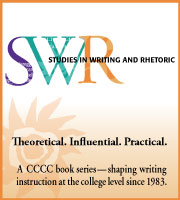In 2016, at the meeting of the Conference on College Composition and Communication in Houston, TX, a series of resolutions were approved regarding the material conditions of teaching writing in college. One of the approved resolution read as follows:
Whereas the contingent status of an increasing cadre of writing instructors is seemingly entrenched in our institutions; and Whereas advocates for contingent writing faculty often need support on an ad hoc basis; BE IT THEREFORE RESOLVED that the Conference on College Composition and Communication dedicate a liaison for contingency issues (e.g., fair labor standards, unemployment insurance claims, legal issues related to hiring/nonrenewals).
As a call to action to the CCCC Executive Committee, then-chair Joyce Locke Carter said that the organization was [and then to the quote]
…finally able to act upon a suite of proposals that originated in the Indianapolis Resolution—designed to make the CCCC more responsive to labor issues in the discipline. The room where it happened was our annual business meeting, held on the last day of the Houston Convention. A key starting point to these interconnected resolutions was the creation of a liaison for labor issues, and I have named Holly Hassel and Keith Rhodes as our inaugural liaisons. Together with these liaisons, I have been working with the Labor Caucus, as well as the proponents of those resolutions, to craft the means and mechanics of the rest of the resolutions.
With the establishment of the Labor Liaison, CCCC is taking steps to work toward the requests and goals outlined in the Indianapolis Resolution:
- We call upon disciplinary and professional organizations such as NCTE/CCCC, ADE, MLA, RSA, and CWPA to consolidate and publicize the numerous extant professional standards documents on one user-friendly, accessible website; and where appropriate to revise or update those standards.
- Draw explicit attention to the reality that material conditions are teaching and learning conditions–that current labor conditions undervalue the intellectual demand of teaching, restrict resources such as technology and space to contract faculty, withhold conditions for shared and fair governance, and perpetuate unethical hiring practices–as the central pedagogical and labor issue of our times.
- Create a clearinghouse of information about how disciplinary professional statements such as CCCCs ‘Principles for the Postsecondary Teaching of Writing,’ NCTE’s ‘Position Statement on the Status and Working Conditions of Contingent Faculty’ and CWPA’s ‘Portland Resolution’ have amply codified best practices for reasonable and equitable working conditions, and where appropriate are in need of updating; how innovative teachers and administrators have made compelling, forceful, and successful arguments to help their institutions improve working conditions for all faculty.
- Offer more material and professional support and opportunity for the creation, publication, and dissemination of quantitative and qualitative research into the impacts of the labor system on the teaching and learning of writing.
- Consider research into labor and its effects on teaching and learning with the same intellectual weight and scholarly respect as other subjects in our field.












